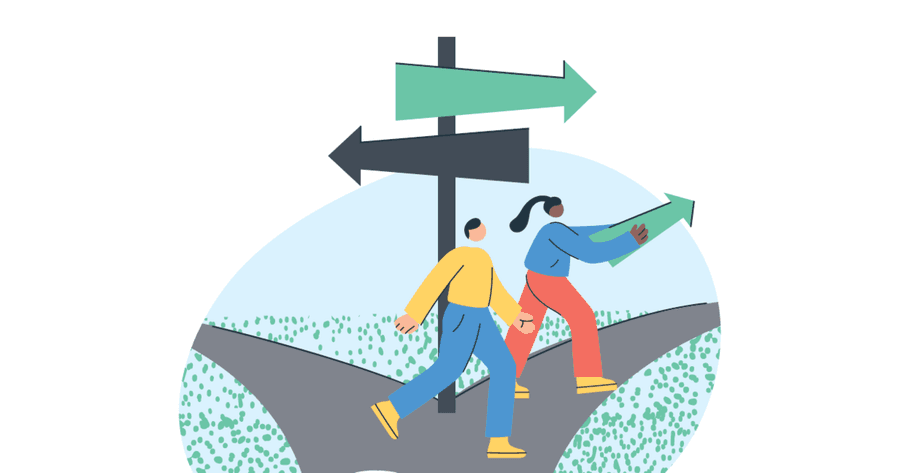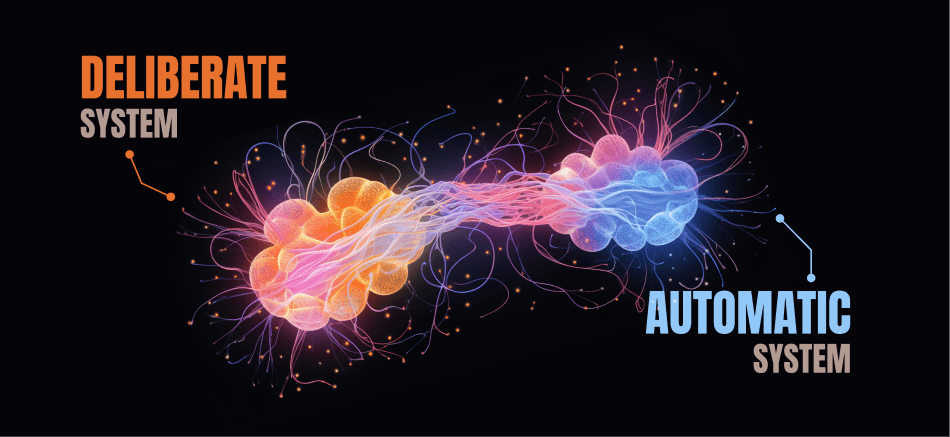Intuitive and reflective thinking
- Intuitive and automatic: This kind of thinking is quick and feels instinctive. You duck when a ball is thrown at you unexpectedly.
- Reflective and rational: This thinking is deliberate and self-conscious. You use this system when you have to decide which route to take for a trip.
276
1.44K reads
The idea is part of this collection:
Learn more about personaldevelopment with this collection
How to make rational decisions
The role of biases in decision-making
The impact of social norms on decision-making
Related collections
Similar ideas to Intuitive and reflective thinking
The two thinking styles
Intuitive thinking is described as automatic, fast, and subconscious. Analytic thinking, on the other hand, is slow, logical, conscious and deliberate. Analytic and intuitive thinking are not opposites. They are complementary and can work in concert.
Even groundbreaking scient...
The Two-System Brain
Daniel Kahneman, Nobel prize winner, explains how our mind has 2 modes:
- Your deliberate system is responsible for sophisticated functions such as reasoning, self-control, and forward-thinking. It excels in handling anything unfamiliar, complex, or abstract. But it has ...
Automaticity
This is the ability to perform a behavior without thinking about each step, which allows the pattern to become automatic and habitual.
Because when you begin practicing a new habit it requires a lot of conscious effort to remember to do it. But after a while, your new habit becomes a...
Read & Learn
20x Faster
without
deepstash
with
deepstash
with
deepstash
Personalized microlearning
—
100+ Learning Journeys
—
Access to 200,000+ ideas
—
Access to the mobile app
—
Unlimited idea saving
—
—
Unlimited history
—
—
Unlimited listening to ideas
—
—
Downloading & offline access
—
—
Supercharge your mind with one idea per day
Enter your email and spend 1 minute every day to learn something new.
I agree to receive email updates

